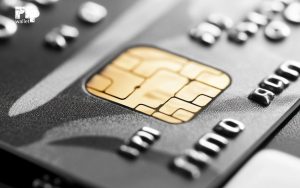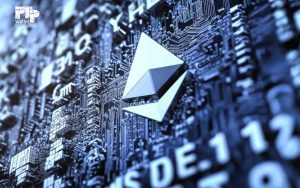The concept of non-fungible tokens (NFTs) has transcended its origins in the art and music domains and has now become prevalent among luxury fashion labels and renowned movie franchises. Recently, beverage alcohol brands have also joined the trend. For instance, Budweiser successfully sold all of its $500 NFTs in just one hour, while Glenfiddich introduced a limited edition of rare 1973 Armagnac Cask Finish Single Malt Scotch through an NFT drop.
There are several reasons why beverage brands find it enticing to venture into the realm of NFTs. These motivations range from safeguarding against counterfeit bottles to making a significant impact during the launch of a new brand.
Crypto Enters the Alcohol Industry: Implications and Opportunities
In a move that showcased the growing intersection between the wine industry and the crypto world, French wine distributor Vin Malin made headlines last year by announcing its acceptance of cryptocurrency payments. Jean-Christophe Gallois, the company’s director, initially limited the accepted cryptocurrencies to bitcoin (BTC) and ethereum (ETH), but there remains the potential for expanding the range of accepted digital currencies in the future.
Interestingly, Vin Malin is not the only French wine merchant venturing into the crypto realm. BTC Wine, an online retailer operated by Lasserre & Papillon, a Bordeaux-based company, has been experiencing substantial gains during the recent bitcoin bull run. BTC Wine exclusively sells its products in bitcoin, attracting cryptocurrency enthusiasts and wine connoisseurs alike.
However, it’s not just France that has witnessed the convergence of alcohol and crypto. In February, neighboring Switzerland joined the trend as Sygnum Bank and Fine Wine Capital collaborated to tokenize premium investable wines as digital assets for trading. This innovative approach to wine assets enables the expansion of the private collector investor base, attracting both private individuals and institutional investors interested in fractional ownership of unique and tangible assets. The tokenization process offers efficient opportunities for holding, trading, and even requesting physical settlements of these distinctive wine assets.
Furthermore, the NFT craze has also caught the attention of another European alcohol producer. Kinsale Spirits, an Irish whiskey distiller, has recently entered the NFT space by offering a rare 20-year-old single malt as part of an alcohol NFT auction. By implementing measures that establish legally binding and easily traceable digital asset ownership, Kinsale Spirits may contribute to setting a precedent for the emerging landscape of this innovative space.
Meanwhile, in the United States, a legendary wine shop with a remarkable history announced its decision to accept cryptocurrencies as a form of payment. Acker, established in 1820 and renowned as the largest rare and fine wine auction house in North America, proudly embraces this novel form of transaction, providing customers with the opportunity to make purchases using digital currencies.
Compliance Considerations in the Alcohol NFT Landscape
For individuals involved in the alcohol beverage industry, the intricacies of the U.S. regulatory three-tier system are well-known. However, when it comes to compliance regarding NFTs associated with alcohol, the regulatory landscape remains somewhat uncharted. Beverage brands that venture into releasing NFTs tied to experiences, like those from Clives or the upcoming NFTs from The Masters Keep—a collaborative enterprise partnering with small distillers to offer unlockable content such as distillery visits or exclusive dinners with brand owners—face fewer regulatory hurdles. Nevertheless, when the unlockable content involves alcohol, compliance primarily revolves around whether the individual NFT seller holds the necessary alcohol sales license.
Many prominent brands that have released NFTs opt to work with third-party providers like BlockBar, as these platforms possess licenses to directly sell NFTs to consumers. It is crucial for buyers of NFTs associated with alcohol to also grasp the importance of legal compliance, as regulations concerning the resale of these NFTs can vary by state. BlockBar serves as a marketplace where consumers who initially purchased their NFTs on the platform can choose to sell them through the marketplace instead of redeeming them, functioning similarly to an auction site.
Incorporating a digital image of the bottle, the NFT package includes a unique vodka or gin bottle with a special label. To adhere to three-tier laws, the bottles were promptly dispatched by a Washington State liquor store, thereby restricting the sale of NFTs to consumers residing in states where alcohol could be shipped. However, since Industry Spirits explicitly stated in the sales terms that resold NFTs only consist of the digital artwork without the physical bottle, subsequent consumer resales excluded the alcohol component, ensuring compliance, as clarified by Friedman.
The most prudent approach for legal compliance might involve altogether avoiding consumer resales, although this contradicts the trading card nature of NFTs. The ongoing commercial potential of NFTs is still being defined, but the popularity and scope of alcohol-related NFT releases with unlockable content are expanding. Perhaps, in the future, a more formal regulatory framework will emerge to address this nascent market.
Follow for more:
Telegram: https://bit.ly/3KbviBe
Twitter: https://bit.ly/3Zr6h9E
Website: https://bit.ly/3FWBaMc



